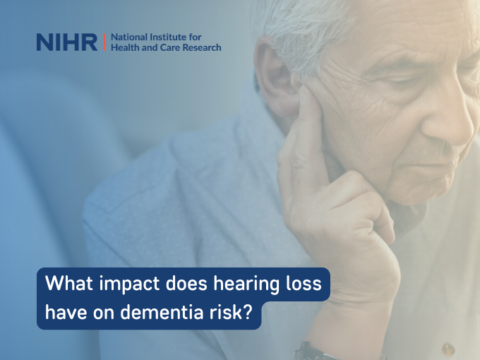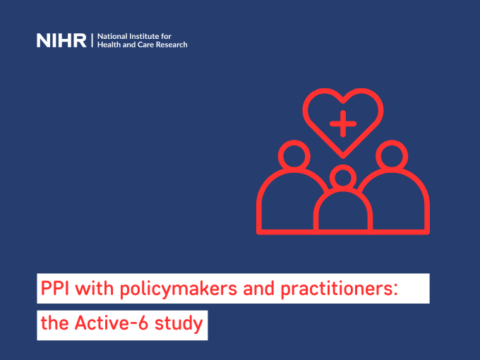
The NIHR has announced a £135 million investment in 15 new NIHR Applied Research Collaborations (ARCs), which will join up some of the country’s best universities, leading innovators and local authorities to solve some of the biggest issues facing health and social care over the next five years.
The funding has been awarded to 15 partnerships covering every area of England, made up of health and care providers, commissioners, local authorities, universities, private companies, charities, and academics, who will work together to address specific health or care issues in their region.
Health Minister Nicola Blackwood said: “As the population grows and demand on the NHS increases, it is paramount we develop the next generation of technologies and improve the way we work to ensure the NHS continues to offer world-leading care.
“The UK has a proud history of cutting edge health research and by supporting the great minds in health and social care, this funding has the potential to unlock solutions to some of the biggest challenges facing healthcare and revolutionise the way patients access treatments in the future.”
The ARCs scheme aims to improve outcomes for patients and the public; improve the quality, delivery and efficiency of health and care services; and increase the sustainability of the health and care system both locally and nationally.
The funding will also support, facilitate and increase the rate at which research findings are implemented into practice.
A total of up to £15 million of additional NIHR funding will be available to NIHR ARCs to facilitate cross-ARC collaboration on identified national priorities for applied health and care research, to deliver a step change in national-level impact.
Patients, carers and the public were part of the application and decision-making process.
The new funding follows a number of successful projects by NIHR Collaborations for Leadership in Applied Health Research and Care (CLAHRCs), including research that led to the commitment in the NHS Long Term Plan of every woman receiving care from the same midwife during pregnancy, birth and postnatally by 2021. The new NIHR ARCs will replace the CLAHRCs in October 2019.
Prof Chris Whitty, NIHR Lead and Chief Scientific Adviser to the Department of Health and Social Care, said: “The unique local collective approach at each NIHR ARC will support applied health and care research that responds to, and meets, the needs of local patients, and local health and care systems. The network will also be able to tackle health priorities at a national level.
“The 15 new NIHR ARCs will ensure that we grow applied health and care research in every region in England. The additional funding announced today means we will ensure that our world-leading research is turned into real benefits for patients and ensure the NIHR Applied Research Collaborations work together to have national-level impact.”
| Name | Host NHS organisation | Research priorities |
| NIHR Applied Research Collaboration East of England | Cambridgeshire and Peterborough NHS Foundation Trust | 1. Ageing and multimorbidity 2. Population evidence and data science 3. Inclusive involvement in research for practice-led health and social care 4. Health economics and prioritisation in health and social care 5. Mental health over the life course 6. Palliative and end of life care 7. Prevention and early detection in health and social care |
| NIHR Applied Research Collaboration East Midlands | Nottinghamshire Healthcare NHS Foundation Trust | 1. Mental health and wellbeing 2. Managing multi-morbidity 3. Building community resilience and enabling independence 4. Data2health 5. Ethnicity and Health Inequalities 6. Translating and implementing sustainable service improvement |
| NIHR Applied Research Collaboration Greater Manchester | Manchester University NHS Foundation Trust | 1. Healthy ageing 2. Digital health 3. Mental health 4. Organising care 5. Evaluation 6. Implementation science 7. Economic sustainability |
| NIHR Applied Research Collaboration Kent, Surrey and Sussex | Sussex Partnership NHS Foundation Trust | 1. Social care 2. Starting well: early detection and intervention of mental health problems in children and adolescent 3. Living well with dementia 4. Primary and community health services 5. Co-production 6. Public health 7. Digital innovation 8. Economics of health and social care |
| NIHR Applied Research Collaboration North East and North Cumbria | Northumberland, Tyne and Wear NHS Foundation Trust | 1. Multimorbidity, ageing and frailty 2. Supporting children and families 3. Prevention, early intervention and behaviour change 4. Integrating physical, mental health and social care 5. Inequalities and marginalised communities 6. Assistive technologies and data linkage 7. Evaluating change with pace and scale 8. Knowledge mobilisation and implementation science |
| NIHR Applied Research Collaboration North Thames | Barts Health NHS Trust | 1. Mental health: tackling social and institutional inequalities in mental health systems 2. Multimorbidity: understanding clusters and evaluating care 3. Population health and social care 4. Innovation and implementation science 5. Health economics and data |
| NIHR Applied Research Collaboration Northwest London | Chelsea and Westminster Hospital NHS Foundation Trust | 1. Child population health 2. Multimorbidity 3. Digital health 4. Innovation and evaluation 5. Information and intelligence 6. Patient, public, community engagement and involvement 7. Collaborative learning and capacity building |
| NIHR Applied Research Collaboration North West Coast | NHS Liverpool CCG | 1. Person-centred complex care 2. Improving population health 3. Equitable place-based health and care 4. Methodological innovation, development, adaptation and support 5. Health and care across the life course 6. Care and health informatics |
| NIHR Applied Research Collaboration Oxford and Thames Valley | Oxford Health NHS Foundation Trust | 1. Disease prevention through health behaviour change 2. Patient self-management 3. Mental health across the life course 4. Community health and social care improvement 5. Applied digital health 6. Novel methods to aid and evaluate implementation |
| NIHR Applied Research Collaboration South London | King’s College Hospital NHS Foundation Trust | 1. Alcohol 2. Applied informatics 3. Capacity building 4. Children and young people 5. Economics and biostatistics 6. Implementation research 7. Maternity and perinatal mental health 8. Palliative and end of life care 9. Patient and public involvement research 10. Public health and multimorbidities 11. Social care |
| NIHR Applied Research Collaboration South West Peninsula | Royal Devon and Exeter NHS Foundation Trust | 1. Dementia 2. Mental health 3. Public health 4. Complex care 5. Methods for research and improvement |
| NIHR Applied Research Collaboration Wessex | University Hospital Southampton NHS Foundation Trust | 1. Ageing and dementia: supporting independent living for people with complex health needs 2. Healthy communities: improving public health across the life course 3. Long-term conditions: integrating person centred approaches to optimise healthy living 4. Health systems & workforce: supporting health and social care by improving service delivery |
| NIHR Applied Research Collaboration West | University Hospitals Bristol NHS Foundation Trust | 1. Mental health 2. Behavioural and qualitative science 3. Public health and prevention 4. Applied data science 5. Integrated and optimal care 6. Healthier childhoods 7. Evidence 8. Health economics |
| NIHR Applied Research Collaboration West Midlands | University Hospitals Birmingham NHS Foundation Trust | 1. Long-term conditions 2. Acute care interfaces 3. Integrated care in youth mental health 4. Maternity 5. Cross-cutting: organisational science 6. Cross-cutting: research methodology, informatics and rapid response |
| NIHR Applied Research Collaboration Yorkshire and Humber | Bradford Teaching Hospitals NHS Foundation Trust | 1. Older people with frailty 2. Early life and prevention 3. Urgent and emergency care 4. Mental and physical multimorbidity 5. Health economics, evaluation, equality 6. Improvement science |

 Print This Post
Print This Post





